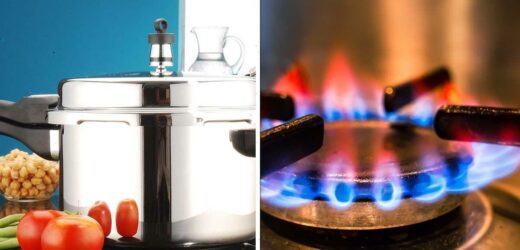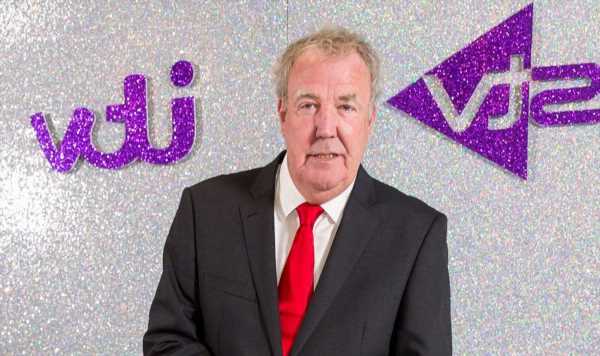Energy: Radio caller says he’s ‘waiting to be cut off’
We use your sign-up to provide content in ways you’ve consented to and to improve our understanding of you. This may include adverts from us and 3rd parties based on our understanding. You can unsubscribe at any time. More info
As household energy bills soar to staggering levels, households have been flocking towards oft-forgotten cooking appliances and technologies like pressure cookers and heated blankets. According to retailers, these appliances, which were household staples for our grandparents, are now making a major comeback as Britons look for ways to lower their energy bills. From October 1st, energy regulator Ofgem raised the price cap on energy bills to an eye-watering £2,500 a year, up from £1,971 a year. Prior to Prime Minister Liz Truss’ intervention, the energy bills were due to rise by a staggering £3,549 a year. As bills have claimed steeply over the past year, retailers have found that the sales of many energy-saving gadgets have soared.
John Lewis reported that its sales of pressure cookers have risen by 110 percent, while slow cooker purchases are up by a staggering 262 percent. Britons are also turning to modern air fryers, which are also up by 176 percent.
Pressure cookers use heat, steam and high pressure to tenderise cheap cuts of meat, and generally can cook meals faster than an oven or a hob, and were a kitchen staple for previous generations.
However, once the microwave became popular, pressure cookers began losing popularity, particularly due to fears over safety issues, as people feared that opening up a scalding metal pan filled with high-pressure steam could cause an explosion in the kitchen.
These concerns generally don’t apply today, as modern pressure cookers are far easier, safer to use, and have many automated settings.


However, modern ones are far easier and safer to use and many have automated settings. According to estimates from the manufacturer Crockpot, an electrical pressure cooker generally uses around 500W to cook an average stew in just 21 minutes, compared with 205 minutes to cook the same meal using around 3,000W in a conventional oven.
Other energy-saving household appliances, like electric blankets, thermal underwear, hot water bottles and insulated flasks are gaining popularity, according to the Mail.
Research by the insurance firm Aviva predicts that by the end of the year, there will be a 113 percent increase in adults who own a “sleeved blanket” that can be worn like a robe, while owners of electric blankets could rise by 89 percent.
Meanwhile, Britons could ditch spending money on Starbucks, opting for carrying around vacuum flasks, as Aviva estimates a 44 percent increase in ownership.

Research also predicts a 33 percent spike in hot water bottle sales, a sewing machine ownership predicted to rise by 60 percent, suggesting that some Britons could turn to making their own clothes in this cost-of-living crisis.
Explaining the popularity of pressure cookers for hard-pressed modern homeowners, a John Lewis spokesman said: “The cooking method often used by our parents and grandparents to tenderise cheaper cuts of meat is once again popular as thrifty, time-poor cooks rediscover the time and fuel-saving benefits of these marvellous machines.”
While this crisis is driving sales of energy-efficient appliances, which save bills while also lowering gas consumption, experts have warned that Britons are now being driven to make less sustainable, less environmentally-friendly choices as the cost-of-living crisis pinches household finances.
This is the finding of a nationally representative survey of 2,000 UK adults commissioned last month by the insurance firm Zurich and undertaken by Opinium.
DON’T MISS:
Truss handed ‘quick and cheap’ energy goldmine to power ‘millions’ [REVEAL]
End of the world warning as billions ‘unprepared’ for major disasters [INSIGHT]
Sturgeon humiliated as ‘false’ green energy claims torn apart [ANALYSIS]


In fact, six in 10 respondents polled said, despite wanting to make more eco-friendly choices, they were being forced to pick more economical, less sustainable options as prices continue to rise.
This figure rises to seven in 10 among younger adults, the researchers said, with this subset of the population feeling the present financial strain more acutely.
Overall, they noted, nearly three-quarters of the British public are keen for the Government to take steps to make sustainable behaviour and products more cost-effective.
Zurich UK’s Chief Sustainability Officer John Keppel said: “The impact of the current economic landscape on the general public [is] so stark and immediate.” Given this, he added: “It’s totally understandable that people prioritise making ends meet over living greener lives.”
Source: Read Full Article


